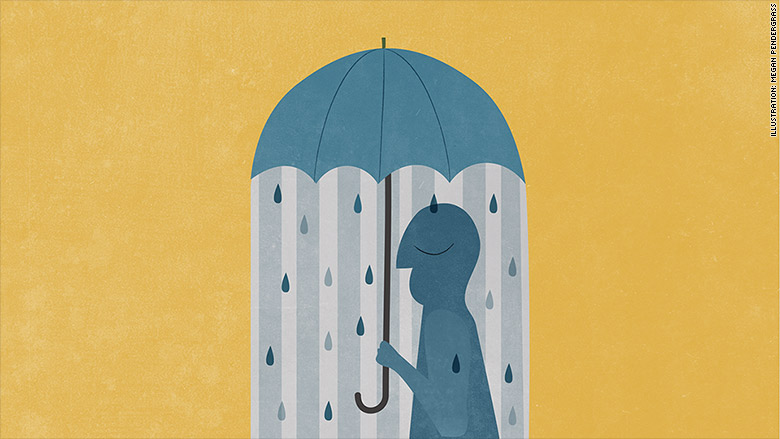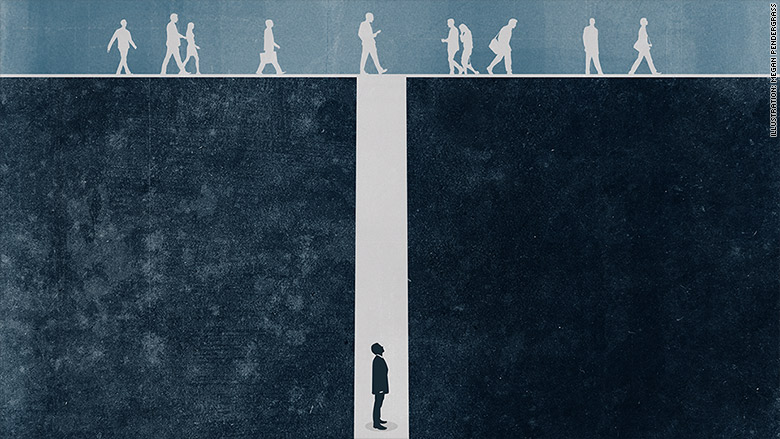
Making millions a year in a cushy job with a lifestyle to match may seem like the fast track to happiness, but that's not necessarily the case.
Experts say that the pressure that comes with wealth or success can be a driving factor in depression, an illness that affects 1 in 10 American adults, according to the Centers for Disease Control and Prevention.
"There can be a kind of isolation for those people at the top," said Dr. Steven Roose, a psychiatrist with the Hope for Depression Research Foundation, and whose Upper East Side practice caters to the Wall Street crowd. "Wealth does not protect you from this illness any more than wealth protects you from cancer."
Related: Davos elite: We are not the bad guys
Money didn't buy happiness for Peter, a management consultant in his 50s, who has struggled with depression for much of his life. (CNNMoney is declining to publish Peter's last name as he is currently undergoing treatment for depression.)
"It's all tied up with the perception of lack of control and how that does not mesh with roles of power or high status," Peter said.
Peter went from a wealthy upbringing to an Ivy League education, law school and a job at a top consulting firm.
"You're saying, well gee, I'm the CEO or I'm the Goldman Sachs partner or partner at McKinsey or whatever the high status thing is, and I'm supposed to have my life under control and people look at me for leadership ... this is not supposed to be happening to me."
His depression really hit him in his 30s. He said he went from being a fully-functioning consultant at a top firm to being unable to get out of bed. He said his depression made it difficult for him to function and caused "almost a physical feeling of being in a hole."
He's also seen a stigma of depression among his peers. He spoke of a colleague from a similar background who didn't get the help he needed, and finally "locked himself in his car and stuck a hose in the tailpipe." He left behind a wife and three kids.

The pressure can be even harder on successful women. A study published last year called Gender, Job Authority and Depression found that women who hold jobs with authority exhibit more depressive symptoms than their male peers. Part of the issue, the researchers said, is that women face "prejudice, discrimination, unfavorable stereotypes, negative social interactions, lack of communication and support from superiors and coworkers, and pressure to perform better than men to prove competence."
Related: Wealthy women are younger and less likely to have kids
Suddenly coming into money can also create pressure that frequently leads down a path to depression.
"What people don't realize is when there is a life-changing event -- even conventionally good news like an inheritance -- that their life changes and the life that they knew up until that point exists no longer," said financial adviser Myra Salzer, owner of The Wealth Conservancy, who works with inheritors above the multimillion-dollar net worth range.
She's seen some clients become depressed.
"They don't realize what's wrong with them," Salzer said. "They're supposed to be happy and partying and buying drinks for everybody."
Recognizing the symptoms and getting help is exactly what it takes to bring more people back from the brink, according to Roose.
Peter made his way back with the help of a psychiatrist and medication, but says it is a lifelong struggle.
"People can see something is wrong, but they don't feel they can intervene," said Roose. "If we intervene and can treat it we can save lives."

